In the first half of this year, in the shadow of Libyan civil war aftermath, another conflict occurred in the Sahel region. This conflict is known as the War in Northern Mali and has the potential to change the shape of Mali’s territory, power situation in the western part of Sahel and to establish new state under Islamic government. Outbreak of yet another conflict in this area is a powerful sign that the spirit of Arab spring is spreading into another regions in vicinity to Maghreb and Mashreq. But we have to look at these events in broader contexts to see their meaning. So I’d like to point out just a few topics for debate.
1) Defence Strategy of Czech Republic
just day before the Day of Czech Statehood the government ratified another edition of Defence strategy. This document, that is published on Czech Army’s website stresses few valid points. First of all, it recognises the shift in interests of USA that move from Europe (especially Central and Eastern) further to East into Asia. Thus the interests of US security policy don’t concern themselves with Europe (and the European part of NATO) but they are more focused on Af-Pak area and, of course, on China. It only underscores the fact that was already visible during NATO-led, UN-sanctified operation known as Oddysey Dawn/Unified Protector. NATO has to find and create capabilities to lead combat operations without support from US Military.
What I’m missing in this document is the recognition of Africa’s rising importance. In its 7th article, this strategy clearly states that it isn’t possible any longer ignore the increase of modern military capabilities and overall strategic potential of some states in Europe’s neighbourhood and Asia-Pacific region.
The main problem of this philosophical approach is that any state with modern military forces will be primarily focused on USA, China or Russia. Europe’s most pressing concerns are represented by its dependence on import of energy resources from Russia and by cultural and social problems caused by immigration from former colonies. These concerns aren’t solvable by direct application of military power but they will not be solved without the military. But at least someone realised this and I have to only voice my gratification that currently ongoing military exercise of European Union is focused on military operations in Maghreb. That Maghreb is not geopolitical part of Africa is only a minor concern at this time. The important part is that the focus is aimed at this area.
2) Instability and immigration
As mentioned in previous section one of the great concerns for Europe is immigration. I know that I don’t have to write a long treatise about this. Walther Lacqueur wrote a great book on this subject (The last days of Europe, 2006). But if we connect the fact of the still increasing immigration to Europe from countries with strong Muslim majority with relative intolerant attitudes of these immigrants towards other (especially “Western”) cultures then we must realise that Huntington was not so wrong about the clash of civilizations. I do not want to judge anyone on the religious or cultural basis but the immigration issue is a pressing one – from internal security point of view, from economical point of view and also from demographical point of view.
Here is a possible scenario:
National Movement for the Liberation of Azawad and its allies succeed in declaring independence and new state of Azawad separates from Mali. Thus a new entity forms on the Saharan border with post-war Libya. But its (NMLA’s) former allies – Ansar Dine, Movement for Oneness and Jihad in West Africa, Al-Qaeda in Islamic Maghreb and Boko Haram form a new alliance and conduct a successful coup d’état.
This way a new state with radical Islamic government is created with ties to other insurgent movements in the region (like Boko Haram in Nigeria). Also it has access to immigration routes from the Gulf of Guinea area through Libya, Algeria and Tunisia to France and Italy. If we use these presented elements as base for a deduction then we get an interesting (and equally disturbing) result where Islamic radicals and/or terrorists use immigration routes from Azawad into the heart of Europe.
This scenario is one of the possible ones and I am not saying that it is also a probable one. But I think that it is worth of a thought.
3) Situation in the area
If we look at the history of Gulf of Guinea region, we discover that culturally it is a very diverse area. Although all but one of Mali’s neighbors is the former French colony (the exception is Gambia that was British colony) the regional leaders are former British colonies – Nigeria and Ghana. But even these two countries differ greatly. Nigeria is a federation with major Muslim population (more than 50% according to 2003 report) but Ghana is unitary republic with 43% Christian population.
The major ethnic group in Ghana – the Akan – is patriarchal but with matrilineal traditions. On the other hand, ethnic groups in Nigeria are strictly patriarchal. Because of this diversions it is not a surprise that the insurgent groups (that are predominantly Muslim) in northern Mali has ties to Nigerian rebels and not to any similar groups in Ghana. But there is the problem of internal issues – separatist movements in Niger Delta and struggle for stability in Ghana prior to presidential elections in December 2012 – that is interfering with any possible effort towards peacekeeping in Mali. That is why there was voiced an proposal that NATO should intervene in northern Mali.
In my opinion, we will not see any decisive action from NATO in Mali in any foreseeable future. But what we will be able to see (and our armed forces participate) in interventions like we saw in Libya after the retreat from Afghanistan in 2014. I dare to make the prediction like this because we will be forced to act. Immigration, America’s attention elsewhere, oil and gas supplies from Gulf of Guinea – these are and will be the main elements that will influence and define the decision making of our political leaders in next few years. And that is why it is appropriate to rediscover Africa. Not as a source of raw materials or labor force but as an object of efforts to safeguard Europe.

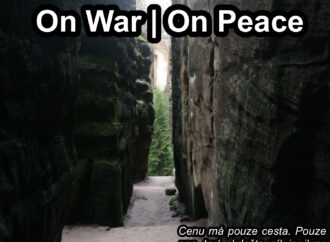
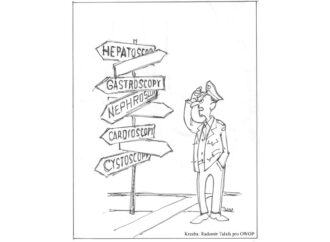


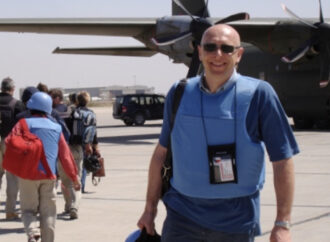
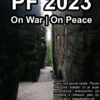
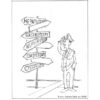


Leave a Comment
Your email address will not be published. Required fields are marked with *